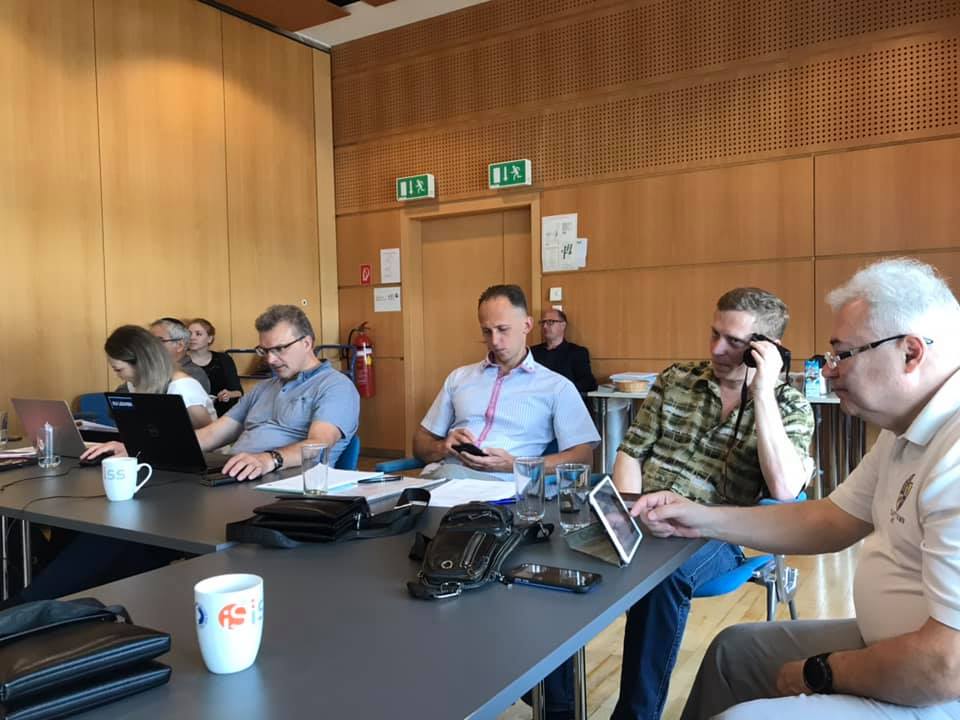[vc_row][vc_column][vc_row_inner el_class=”main-color-2-bg dark-div”][vc_column_inner][vc_column_text css=”.vc_custom_1567328595011{padding-top: 20px !important;padding-right: 20px !important;padding-bottom: 20px !important;padding-left: 20px !important;}”]
2nd Project Meeting in Krems, June 3rd-7th 2019
[/vc_column_text][vc_column_text css=”.vc_custom_1567705670547{padding-right: 20px !important;padding-left: 20px !important;}”][/vc_column_text][/vc_column_inner][/vc_row_inner][/vc_column][/vc_row][vc_row][vc_column][vc_column_text css=”.vc_custom_1567328670307{padding-top: 20px !important;}”]
 The Department for Integrated Sensor Systems offers – within the framework of the Erasmus+ project – knowledge transfer aiming to modernize teaching in the educational and laboratory facilities located in Israel and Ukraine. It is planned that the partner countries shall receive support in reforming university education systems heading for the Bologna process.
The Department for Integrated Sensor Systems offers – within the framework of the Erasmus+ project – knowledge transfer aiming to modernize teaching in the educational and laboratory facilities located in Israel and Ukraine. It is planned that the partner countries shall receive support in reforming university education systems heading for the Bologna process.
The project was established as a contribution to modernize and internationalize university-based education in the field of artificial implants, according to the Copenhagen Declaration, the EU 2020 Flagship Initiative and the EU Modernization Agenda 2011. At this, technical developments as well as demands emerging from the labor market are to be taken into account. Danube University Krems is predestined to contribute its know-how in the fields of sensor technology, sensor networks, regenerative medicine and biotechnology due to its transdisciplinary expertise. Israel and Ukraine will become part of the Bologna system and shall be supported during the changing procedure. “The curricula’s alternation is necessary and lies beyond a purely formal conversion as we intend to create a stronger practical orientation,” emphasized Mr Albert Treytl, Department for Integrated Sensor Systems, as responsible for the project.
[/vc_column_text][/vc_column][/vc_row][vc_row][vc_column][vc_column_text css=”.vc_custom_1567328699396{padding-top: 50px !important;padding-right: 10px !important;padding-bottom: 50px !important;padding-left: 10px !important;}”]
Exchange and best practice examples in Krems
The Center for Regenerative Medicine of the Department for Health Sciences, Medicine and Research, together with the Department for Biomedical Research and the Department for Integrated Sensor Systems, specifically designs teaching materials. These are tailored to drive the development of master courses or modules within the field of intelligent implants or wearables equipped with sensors, electronics and actuators.
International experts were able to exchange information and expertise and presented the outcome during a five-day train-the-trainer workshop in June. Best practice examples were discussed during visits leading to institutions, including the Core Facility on the Campus Krems and institutes in Wiener Neustadt.
[/vc_column_text][/vc_column][/vc_row][vc_row][vc_column][vc_column_text]
Link to: agenda_kick-off_meeting_final |
[/vc_column_text][/vc_column][/vc_row][vc_row][vc_column][vc_gallery interval=”3″ images=”137677,137678,137679,137680,137681,137682,137683,137684,137685,137686,137687,137688,137689,137690,137691,137692″ img_size=”large” title=”Some images from the meeting”][/vc_column][/vc_row]

